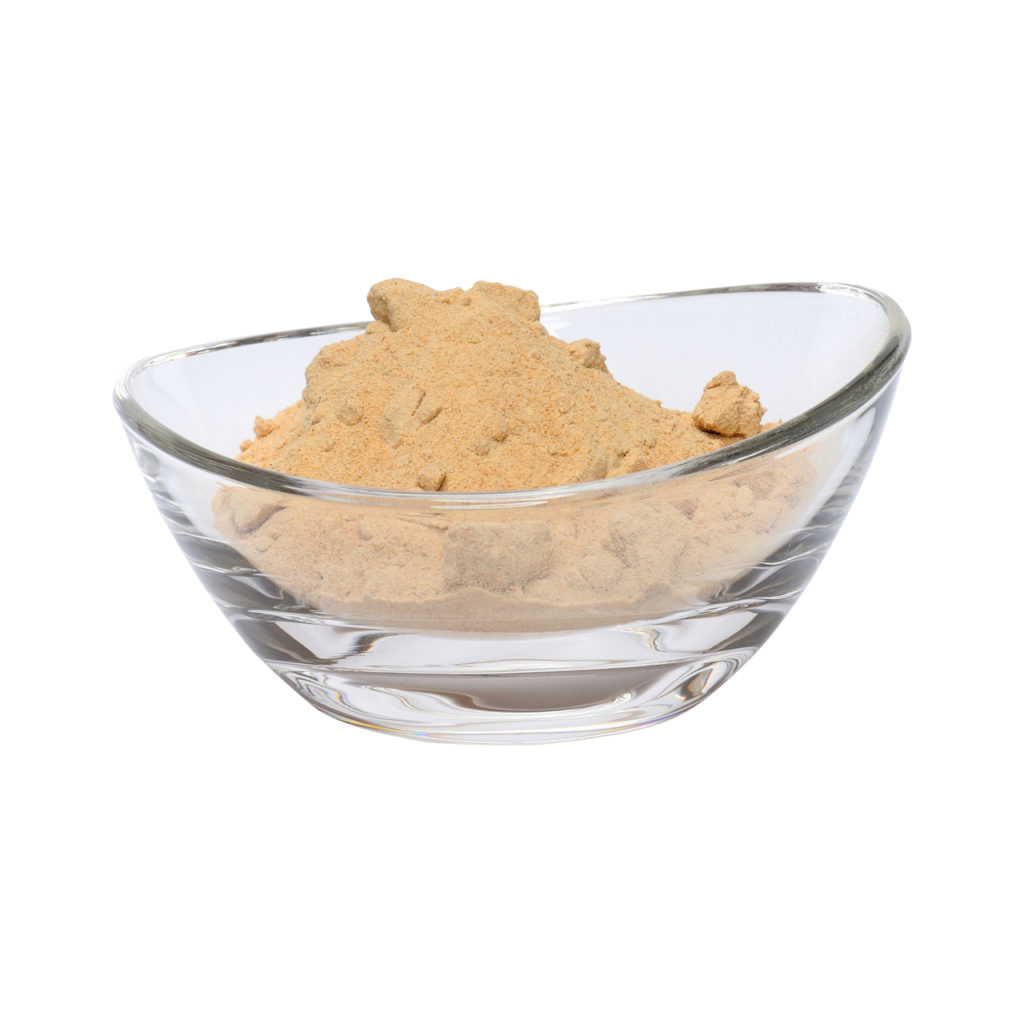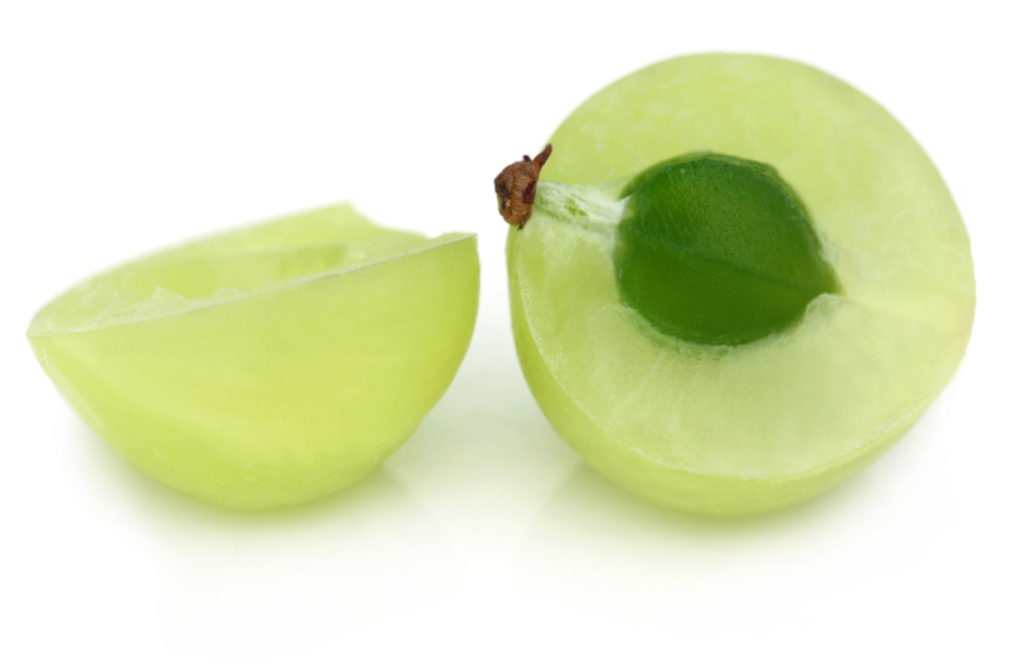What is Organic Amla Powder?
Amla, or Emblica officinalis, is the fruit of the Indian Gooseberry shrub which is a very popular hair conditioning and facial herb in Ayurvedic hair and skin care. The green fruit is often dried and used either whole or ground finely for use on the hair and skin. The powder is a tan or sandy colour with a very fine texture. Here at Henna Sooq, we carry high quality Organic Amla Powder which can be used in a number of different ways to benefit your hair and skin. Amla is also be found in a number of our products: Organic Ayurvedic Strength Hair Kit, Sukesh Ayurveda, Cocoveda Shampoo Bar, Cocoveda Hair Oil, and our Organic Amla Oil.
 What Can Amla Do For Your Hair and Skin?
What Can Amla Do For Your Hair and Skin?
Amla is a great hair conditioner, skin toner, curl booster, skin scrub, and can also mute down the bright tones of henna and create ashy-browns when used with henna and Indigo. Regular use of Organic Amla Powder can assist with encouraging growth and thickening the hair strands.
How Does Organic Amla Powder Work?
Organic Amla Powder has astringent qualities which assist in encouraging and boosting lost curls and waves due to henna use, as well as gently cleanse the hair without stripping the natural protective oils. Also, the high vitamin C content of Organic Amla Powder flattens the cuticle/conditioning (not the same as moisturising) the hair which creates shiny hair and helps to create volume. The reason why Organic Amla Powder may stain lighter hair is due to the natural tannins, which are weak but fade rapidly when the hair is washed again. Organic Amla Powder can also be used as a gentle cleanser for hair that is lightly oiled or not oiled at all. For the skin, Organic Amla Powder is an excellent toning facial masque (shrinks the pores back to normal size) and is best used after cleansing to prevent trapping dirt and oils in the pores as well as an excellent facial and body scrub.
How to use Organic Amla Powder for Conditioning and/or Coloring.
Amla can be used in a number of different ways such as:
- With other herbs (such as Soapnut Powder, Shikakai, Brahmi Powder, Bhringraj, Organic Cassia Obovata) as the conditioning component. Add 3-4 TBS of Organic Amla Powder for conditioning. Curlies should add 1 TSP of Organic Aloe Vera Powder or 1TBS Flax Seed Gel or Aloe Vera Gel/honey to 100g Organic Amla Powder for easier application.
- As a final acidic rinse (1TBS steeped in 2.5 cups of hot water until cooled, strained then poured over the hair and left on for up to 5 minutes).
- As a cleansing tea. Add 1-2 TBS of Organic Amla Powder in 2.5 cups of very hot water left to steep for 30 minutes, strained then poured over the hair for 30 minutes).
- 1 TBS made into a paste and added to conditioner, flax seed gel, Greek yogurt, coconut milk/cream/deep treatment. Do not add the powder directly to a wet paste.
- On its own mixed with tea or water over lightly pre-oiled hair. The amount needed depends on the individuals hair length and thickness. Curlies should add 1 TSP of Organic Aloe Vera Powder or 1 TBS Flax Seed Gel or Aloe Vera Gel/honey/syrup to 100g Organic Amla Powder for easier application.
- As a gravy with other herbs or alone (thicker than the tea/rinse, but thinner than the paste. Use 4 TBS Amla to 2.5 cups of hot water and let cool before use.
- Mixed with henna to boost curl, tone down the redness or to create ashier browns with henna and Indigo (See below).
When Organic Amla Powder is used with henna for the intention of boosting curl and not toning down henna, use only 1TBS per 100g of henna powder and no more to preserve colour. It is best to pre mix the Organic Amla Powder on it’s own with a little water before before adding it to the henna paste and using it.
If Organic Amla Powder will be used for the purpose of toning down hennas intensity, mix the Organic Amla Powder with the henna powder before adding any liquids at a ratio of at least 20% Amla- 80% Henna and let the powders release together. There will be no need to add any acidic liquids to the henna as the Organic Amla Powder is already acidic.
Organic Amla Powder can also boost brown tones and create ashy tones when used with henndigo (henna and Indigo one step), by adding Amla Paste right after the Indigo is mixed in, then applied to the hair right away. Always strand test before dying the hair to avoid surprises. Start off with a simple mix of equal parts of henna, Organic Amla Powder and Indigo and change the ratios until you reach the desired colour.
Using Organic Alma Powder on Skin.
To use Organic Amla Powder as a facial or body scrub, add enough water to the Organic Amla Powder to create a thick paste and rub gent;y all over the skin in a circular motion after cleansing the skin. This is important as Amla can shrink the pores and trap dirt inside if used before cleansing. Rinse of well and pat dry. Organic Amla Powder can also be used as a toning facial masque! To make a toning masque, mix the power with a little water and apply to the face for 15 minutes after deep cleansing. Usually deep cleansing is done with clays such as Rhassoul clay.
Don’t be afraid to experiment and create your own individual recipes.



















I love using amla powder as a part of my natural hair regimen and now my skin care regimen. I use amla mixed in with my henna to help preserve my curls and to make my hair stronger. I just recently started to use it as a facial scrub once a week and my skin is firmer and blemish free. I would advise anyone who wants to try amla powder to give it a try.
Hi can I use amla powder and aloe vera powder together? For straight hair
Hvor kan jeg købe det???
Hi! I just dyed my hair with henna for the first time a few days ago. I put just enough amla powder in my mixture to try and retain my curls (I love my curly hair and don’t want to lose it!) while not toning down the red. I have a bunch left over and was thinking about mixing a paste of amla + water and adding it to my conditioner, but would that tone down my red over time?
Thank you for your post Veronica. No that wouldn’t tone down the red over time. But do maintain henna treatments as those can still fade out over time too. Henna every 4-6 weeks on average.